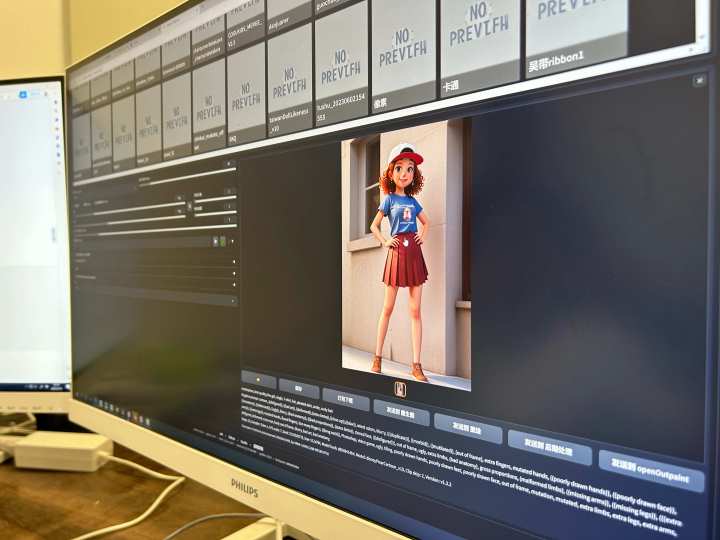
Chinese video game designers experiment with AI

The Jimu Xingchuang company in Southwest China’s Chengdu city teaches street dancing through video games and animation.
It was doing good business during the pandemic when everyone was stuck at home under the zero-COVID policy. Then, the Chinese government abruptly lifted the COVID restrictions last December.
“Our business slowed down. I was trying to improve efficiency and save money. I could cut staff, but then our work wouldn’t progress,” the company’s boss, Zhu Bolong, said.
He got his staff to start playing around with generative artificial intelligence tools.
“I was sitting in this office and my head animator was on the opposite end. I heard all sorts of loud noises of surprise,” Zhu said, adding that his staff couldn’t believe how good AI-generated images were.

The video gaming sector is the first industry in China to feel the effects of generative AI. It is an industry worth $36 billion in 2022 but it has been a rocky few years because the government is concerned about video game addiction. In 2018, Chinese officials stopped approving new video games and did it again in 2021 until it approved more games last year. It has also limited online game play time for school children. Then, there’s the wider economy, which is not recovering as fast as expected.
Now, Zhu is shifting his business again to sell his dance videos as an educational product directly to streaming platforms and he wants to speed up their output. This summer, Zhu bought a very powerful computer to run AI tools. His head animator and person in charge of the art department, Li Guo, used the computer to produce an animation of a girl and boy using search terms, images and a hand sketch. Within minutes, he had drawings close to what he wanted.
“Usually, it’d take 20 days to get to this stage [of the animation],” Li said.
He sees AI tools as an enhancer of his skills.
“At my level, I am considered slow at drawing but now I can draw much faster with the help of AI. Of course, you must have a good foundation in art, but the AI tools make me feel like I’ve gone from a rookie to a master,” Li said.
He believes some jobs will disappear because of generative AI but not the truly creative positions. There is less resistance to AI in China compared to the U.S. That is partly because China’s job market has always been extremely competitive and upgrading skills is seen as a way to get ahead. While there are reports of layoffs in the video gaming sector because of AI, some believe those might be overblown.
“I’ve not heard of companies laying off a lot of people because of AI,” Kimi Shen, owner of a company that makes software tools for clients to create mini video games said. “I’ve only heard of people getting laid off because of the sluggish economy.”
China’s unemployment rate has been hovering at highs between 5% and 6% since the pandemic, while at least one in five new graduates are out of a job. The situation does not appear to have improved and China’s government has stopped publishing jobless figures for people ages 16 and 24 since this summer.

Shen said AI tools cannot replace humans completely in his field yet.
“The problem with generative AI is continuity. If I use AI to create a character, and use the same character for 10 scenes, AI has a tough time keeping the face and clothing the same. I still need a human illustrator to adjust,” Shen said, adding that he foresees generative AI tools as a “co-pilot” to human animators and illustrators.
Back at the online dance teaching firm, Zhu said he hopes AI could help him solve other aspects of his business – like music.
He admits he has used copyrighted songs in his games without paying.
“I have been sued a lot,” Zhu said. “Music royalty fees are getting higher. And people are more aware of copyright laws. But as a small entrepreneur, if I pay licensing fees for say, hundreds of songs, I wouldn’t be able to stay in this business.”
He hopes generative AI could eventually compose music for his company — and help cut costs.
Additional research by Charles Zhang.
There’s a lot happening in the world. Through it all, Marketplace is here for you.
You rely on Marketplace to break down the world’s events and tell you how it affects you in a fact-based, approachable way. We rely on your financial support to keep making that possible.
Your donation today powers the independent journalism that you rely on. For just $5/month, you can help sustain Marketplace so we can keep reporting on the things that matter to you.











